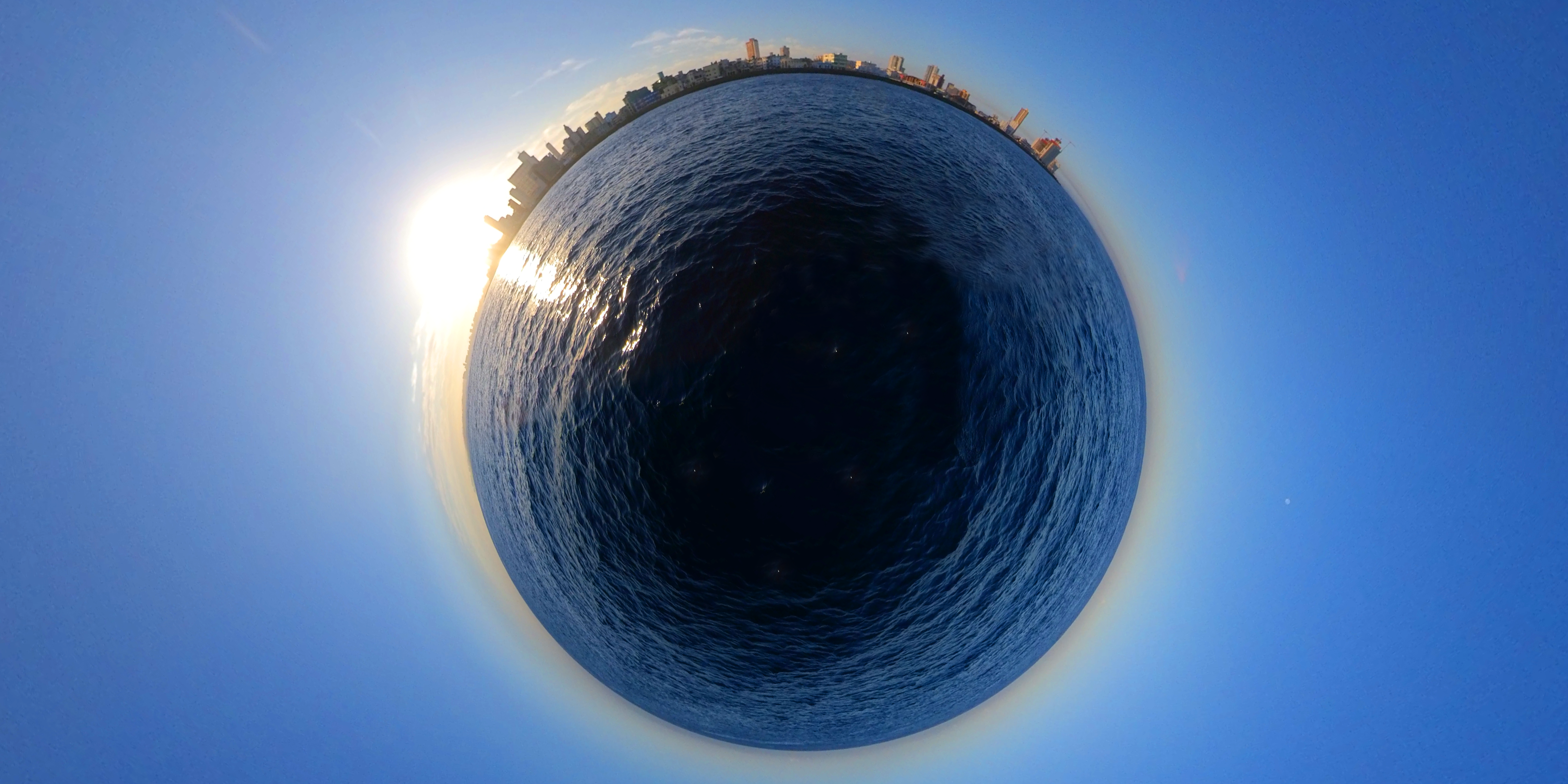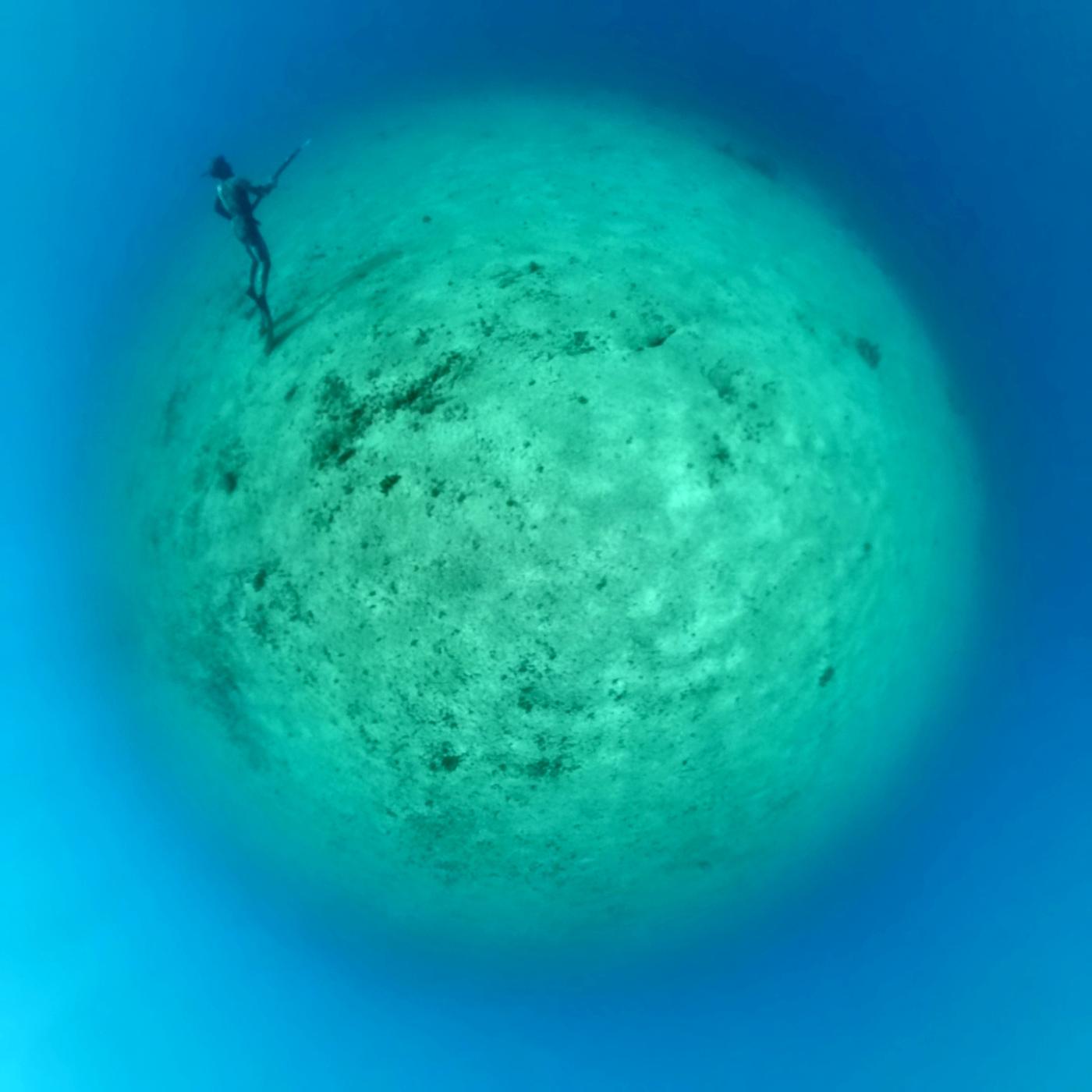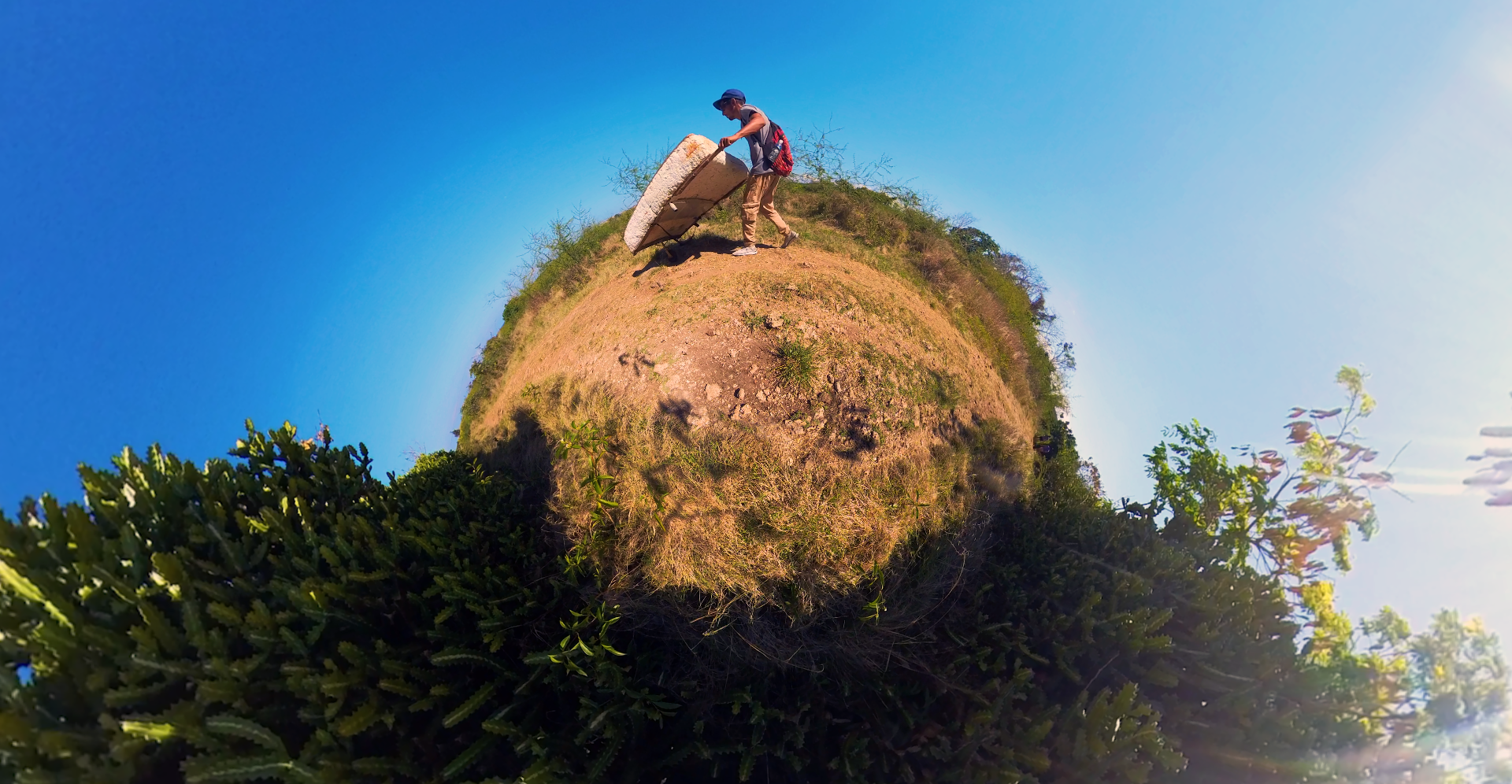Public Project
Isla
Summary
Island is an immersive fishing experience through different Cuban fishermen and their unusual gear. In this way, the viewer enters an adventure never seen before in the depths of the Cuban coast while exploring the changing relationship of Cuban society with the sea and its literal and metaphorical island condition.
To enjoy the whole experience, click on the screen and drag the mouse from left to right and from top to bottom to scroll the image. Also, be sure to use both a browser and a device that support 360-degree content.
Special Thanks to Cooperativa Producciones and Snorkel Cuba.
To enjoy the whole experience, click on the screen and drag the mouse from left to right and from top to bottom to scroll the image. Also, be sure to use both a browser and a device that support 360-degree content.
Special Thanks to Cooperativa Producciones and Snorkel Cuba.
La isla de Cuba en sus últimas décadas de historia ha sido gobernada bajo un régimen comunista que llegó al poder a través una revolución o guerra civil. Su realidad única, sumada a la limitada información que intercambia con el mundo exterior globalizado, despierta curiosidad e interés. La devaluación del peso cubano a valores récord, la inflación del mercado y la emigración de la población joven en especial, que sobrepasa las anteriores crisis migratorias del Mariel (1980) y los balseros (1994) combinadas según el Centro para la Democracia en las Américas (CDA), son algunos de los elementos que marcan la vida cotidiana actual.
Su condición de isla rodeada por el mar Caribe, a 90 millas de la costa de la Florida y en tensión con el gobierno vecino, repercute sin dudas en la realidad cubana por lo que la relación con el mar ha sido regularizada de forma directa por el estado. En este sentido un ciudadano cubano no puede utilizar medios de transporte marítimos sin autorización, estos tampoco pueden ser comprados ni vendidos, ni pueden ser navegados más allá de una cantidad limitada de kilómetros desde la costa. Los botes en su mayoría son heredados por décadas ya que construir o importar motores, radares, herramientas de geolocalización o artes de pesca es prácticamente imposible. En este contexto, la regularización convive con una tradición pesquera que se remonta a los primeros pobladores.
Las principales ciudades del país se desarrollaron alrededor de bahías, puertos y malecones mientras que por toda la costa se extienden pequeños y medianos pueblos pesqueros. En La Habana, la parte antigua de la ciudad bordea la bahía y su desarrollo moderno se extiende al oeste por todo el litoral pasando por la desembocadura del río Almendares. Al este de la bahía se encuentran las playas turísticas de la ciudad, así como pequeños pueblos pesqueros y obreros.
El Fanguito es una área urbana “informal” históricamente situada en los márgenes del río Almendares que contrasta por ser céntrica y vulnerable a la vez. Sus vecinos provienen de una larga tradición de pescadores basada en el intercambio con la marina que posee. Una situación similar ocurre en Cojimar, pueblo pesquero del este, marcado por el mismo tipo de economía e intercambio social aunque su situación geográfica es menos extrema. Ambas áreas proveen a la capital y sus puntos turísticos de la demanda de pescado que las marinas y botes estatales son incapaces de satisfacer. Sin embargo, el acceso general al pescado en Cuba es muy limitado, a pesar de ser una isla hermosa en una posición privilegiada en el golfo del Caribe.
Isla is a developing immersive experience that aims to explore the ties of the Cuban people with the sea, but it does so from the fishermen's perspective, a purely masculine and precarious profession. To do this, it focuses on unique characters and stories that participate in the fishing experience from different points of view. A rickety old boat, a 'cork' or floating device built by the fisherman himself, and deep-dive fishing as a lifestyle are some of these points of view. However, what ties together the experiences besides the witnessing harshness of nature and the surrounding water is a deep and inevitable feeling of loneliness.
The island of Cuba in its last decades of history has been governed under a communist regime that stroke power through a revolution or civil war. Its unique reality, supported by the limited information it exchanges with the globalized world, arouses curiosity and interest. The devaluation of the Cuban peso to record values, market inflation, and the emigration of the young population, which exceeds the previous migratory crises of Mariel (1980) and the Rafters (1994) combined according to the Center for Democracy in the Americas (CDA), are some of the elements that influence daily life.
Its condition as an island surrounded by the Caribbean Sea, 90 miles away from the Florida coast and in tension with the neighboring government, undoubtedly has an impact on the Cuban reality. For this reason, the relationship with the sea has been directly regularized by the central government. Adding to that a Cuban citizen cannot use means of maritime transport without authorization, these cannot be bought or sold, nor can they be navigated beyond a limited number of kilometers from the coast. The boats are mostly inherited for decades since building or importing engines, radars, geolocation tools or fishing gear is practically impossible. In this context, regularization coexists with a fishing tradition that goes back to the first settlers.
The main cities of the country were developed around bays, ports, and boardwalks, while small and medium-sized fishing villages extend along the entire coast. In Havana, the old part of the city grew around the bay and its modern development extends to the west along the entire coastline, passing through the mouth of the Almendares River. At the east of the bay are the city's tourist beaches, as well as small fishing and working-class towns.
El Fanguito is an “informal” urban area historically located on the banks of the Almendares River unique for being downtown and vulnerable at the same time. Its neighbors come from a long tradition of fishermen based on the commerce with the marina that it owns. Cojimar comes from a similar situation, a fishing village in the east, marked by the same type of economy and commerce, although its geographical situation is less extreme. Both areas provide the city and its tourism with the demand for fish that the official marinas and boats are unable to satisfy. However, general access to fish in Cuba is very limited, despite being a beautiful island in a privileged position in the Gulf of the Caribbean.
The island of Cuba in its last decades of history has been governed under a communist regime that stroke power through a revolution or civil war. Its unique reality, supported by the limited information it exchanges with the globalized world, arouses curiosity and interest. The devaluation of the Cuban peso to record values, market inflation, and the emigration of the young population, which exceeds the previous migratory crises of Mariel (1980) and the Rafters (1994) combined according to the Center for Democracy in the Americas (CDA), are some of the elements that influence daily life.
Its condition as an island surrounded by the Caribbean Sea, 90 miles away from the Florida coast and in tension with the neighboring government, undoubtedly has an impact on the Cuban reality. For this reason, the relationship with the sea has been directly regularized by the central government. Adding to that a Cuban citizen cannot use means of maritime transport without authorization, these cannot be bought or sold, nor can they be navigated beyond a limited number of kilometers from the coast. The boats are mostly inherited for decades since building or importing engines, radars, geolocation tools or fishing gear is practically impossible. In this context, regularization coexists with a fishing tradition that goes back to the first settlers.
The main cities of the country were developed around bays, ports, and boardwalks, while small and medium-sized fishing villages extend along the entire coast. In Havana, the old part of the city grew around the bay and its modern development extends to the west along the entire coastline, passing through the mouth of the Almendares River. At the east of the bay are the city's tourist beaches, as well as small fishing and working-class towns.
El Fanguito is an “informal” urban area historically located on the banks of the Almendares River unique for being downtown and vulnerable at the same time. Its neighbors come from a long tradition of fishermen based on the commerce with the marina that it owns. Cojimar comes from a similar situation, a fishing village in the east, marked by the same type of economy and commerce, although its geographical situation is less extreme. Both areas provide the city and its tourism with the demand for fish that the official marinas and boats are unable to satisfy. However, general access to fish in Cuba is very limited, despite being a beautiful island in a privileged position in the Gulf of the Caribbean.
2,399





